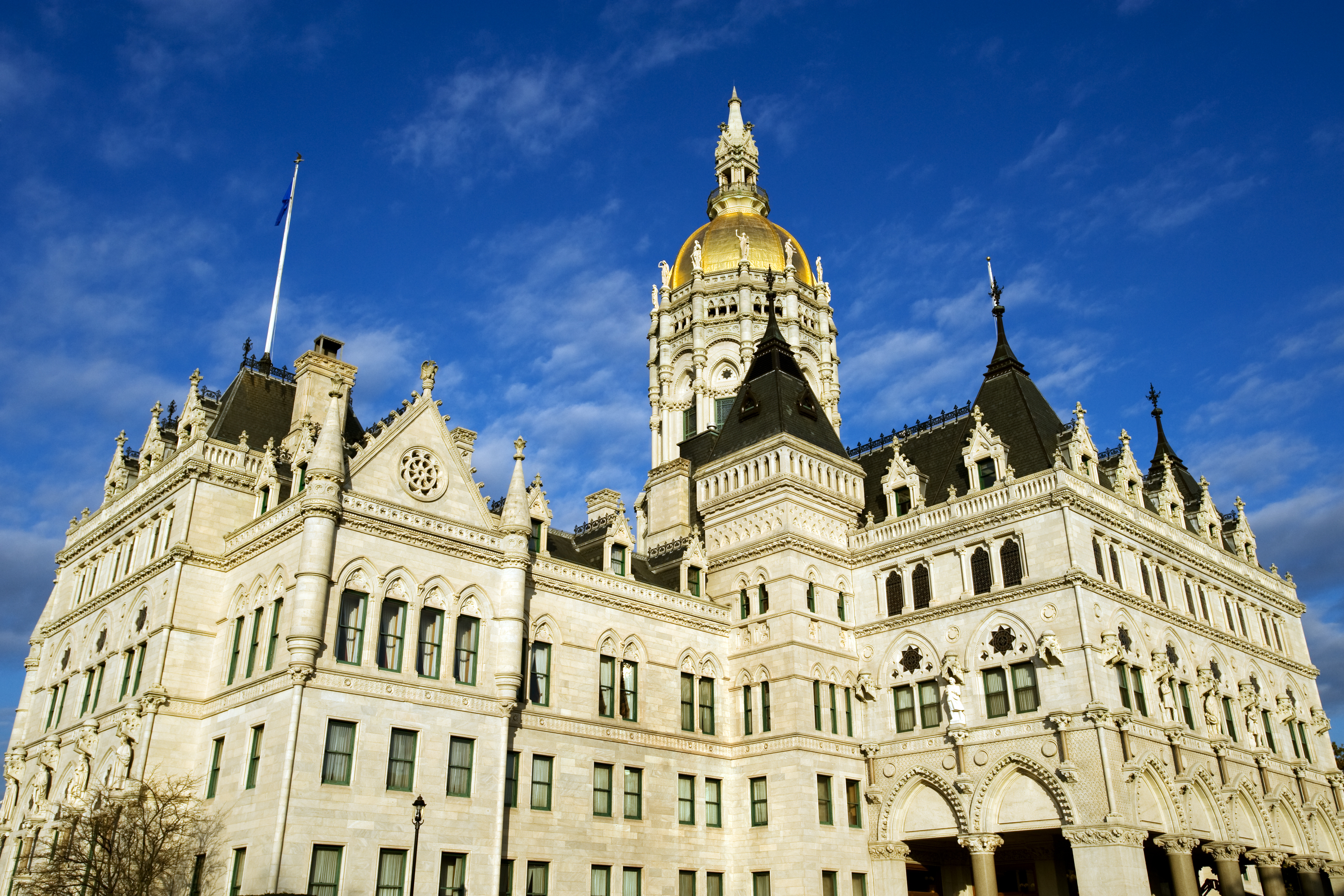Did McDonald Mislead Judiciary Committee on Authorship of Anti-Catholic Bill?

Andrew McDonald, who led the legislative effort in 2009 to strip Catholic bishops and priests of authority over their own parishes–a move widely believed to be payback for the Church’s opposition to same-sex “marriage”–and in 2011, as Governor Malloy’s legal counsel, pushed through the transgender law that allows men in women’s bathrooms (the only bill he testified on that year), has been nominated to be a Justice of the Connecticut Supreme Court.
You can read the FIC Action Alert here and media coverage of the Judiciary Committee’s approval of the nomination–and my reaction–here. The full legislature will likely vote on the McDonald appointment on January 23rd.
You had to be present at the hearing on Monday to get a full sense of what we are up against. McDonald is a former co-chairman of the Judiciary Committee and the Committee’s lack of objectivity in the matter of his nomination was obvious when the Committee’s Vice-Chair, Rep. Matt Ritter, referred to him as “Justice-to-be McDonald” before McDonald had even testified.
Senator Kissel, the ranking Republican, did ask McDonald about his anti-Catholic bill, but only for the purpose of allowing McDonald to clear the air on McDonald’s terms. Kissel followed up with effusive praise for his former colleague.
Sen. Meyer, in a demonstration of how out of touch is our legislature, chimed in that McDonald had few critics. Indeed, there were few who showed up to testify against McDonald, but that was the intention of whoever scheduled this hearing less than a week after the start of the legislative session. Give the public a few more weeks notice and there would have been a line of McDonald critics stretching out the door.
Sen. McLachlan, in fact, began his questioning of McDonald by noting that even the members of the Judiciary Committee were at a disadvantage, because they had only just been given McDonald’s answers to an appellate questionnaire. McLachlan was one of only two members of the Committee to vote against McDonald.
Nevertheless, McDonald did face a few tough questions and said a few things in response that are worth exploring further. For instance, he repeatedly claimed that, contrary to his advocacy for culture war causes in the legislature, he would be a neutral arbiter of the law as a Justice. He emphasized his deference to the legislature’s role in making laws.
Does McDonald, then, think Kerrigan, the Connecticut Supreme Court decision enacting same-sex “marriage” in our state, was wrongly decided? The word enacted is key here, for that is what the Court did. The state legislature explicitly defined marriage as the union of one man and one woman in 2005. But the Court, on October 10th, 2008, ordered Connecticut to begin issuing marriage licenses to same-sex couples on November 12th. The legislature did not codify the ruling until the following April, at which point same-sex couples had been getting “married” in Connecticut for five months on no other authority than the Court’s. There could hardly be a more obvious example of the Court usurping the role of the legislature and enacting a law–not simply interpreting the state constitution and instructing the legislature to do something about it, but enacting the law their black-robed selves. Would a Justice McDonald have voted against Kerrigan? Does anyone seriously believe the answer is yes? And if not, does anyone seriously believe his testimony about deferring to the legislature?
On the matter of McDonald’s veracity: There was a key moment in Monday’s hearing when, under questioning from Sen. McLachlan, McDonald denied any authorship of SB 1098, the 2009 anti-Catholic bill. He said his constituent, Thomas Gallagher, had written it in response to a case of embezzlement by a priest in his district. The embezzlement was real and so was Mr. Gallagher’s outreach to then-Sen. McDonald. But McDonald made this claim about Gallagher’s authorship of SB 1098 in 2009 and it was denied by Gallagher:
Thomas Gallagher, a parishioner at St. Catherine of Siena Roman Catholic Church in Greenwich, said, “The spirit of S.B. 1098 attempts to improve the bishops’ 40 year old model; however, it goes too far and has never been a part of my vision of possible changes.” [emphasis added]
There is also this:
Gallagher said he wasn’t thrilled with the bill as written; he would have preferred that pastors and bishops be given voting authority. “My little idea was to simply add a few … lay trustees to the Catholic parish board,” he said.
And in a March 10, 2009 Stamford Advocate article by Brian Lockhart, (“Greenwich Lawyer Defends Bill for Oversight of Church Finances”):
Gallagher on Tuesday said he had exchanged e-mails with McDonald earlier this session about the possibility of the bill being raised and was as surprised as anyone to learn last week that McDonald and co-chairman Rep. Michael Lawlor, D-East Haven, were moving forward with it. “I was called a day and a half before” by McDonald, Gallagher said.
Did McDonald mislead the Judiciary Committee when he claimed that it was Gallagher, and not him, who authored the most blatantly unconstitutional attack on religious liberty in the state of Connecticut in recent memory? And if McDonald did mislead the Committee, shouldn’t that disqualify him from confirmation?
















January 16, 2013
To bad We are run by a dictatorship in Hartford and DC. It is a dictatorship of Democrats who will approve this bad nomination continuing to prove these state Democrat leaders are anti-Catholic. The Democrats control the state.
January 17, 2013
Please pray one Hail Mary every day for conversion for Andrew who says he is Catholic. With God all things are possible. We also need to pray against Satan to St. Michael. In this time of God’s Mercy we know God has a general and particular judgement. Andrew and all of us need all the prayers and sacrifices we can muster. This is the clarion call.
January 18, 2013
I agree totally with Peter’s post decrying McDonald’s judicial activism bent, and the anti-Catholic, anti-traditional family and morals legislation McDonald and Lawlor rammed through the committee they were gatekeepers of.
We need to do all we can to get legislators to vote against McDonald’s confirmation, because of his unsuitability–his ‘temperament’ is anything but unbiased–and his dishonesty.